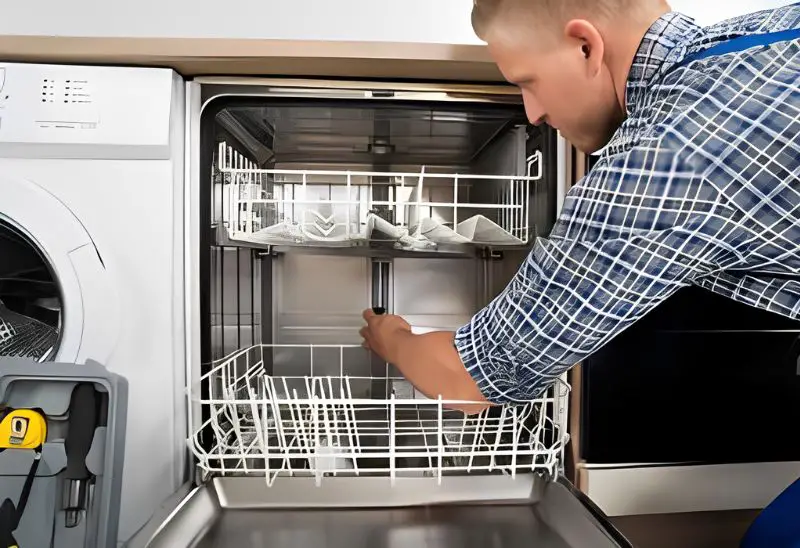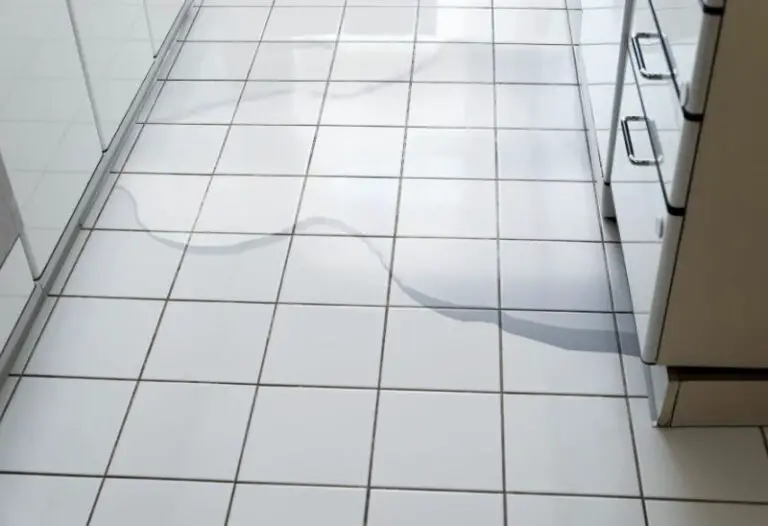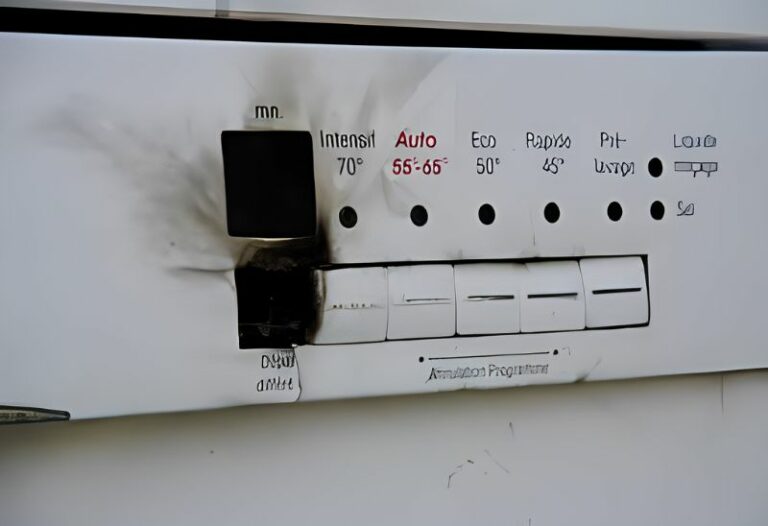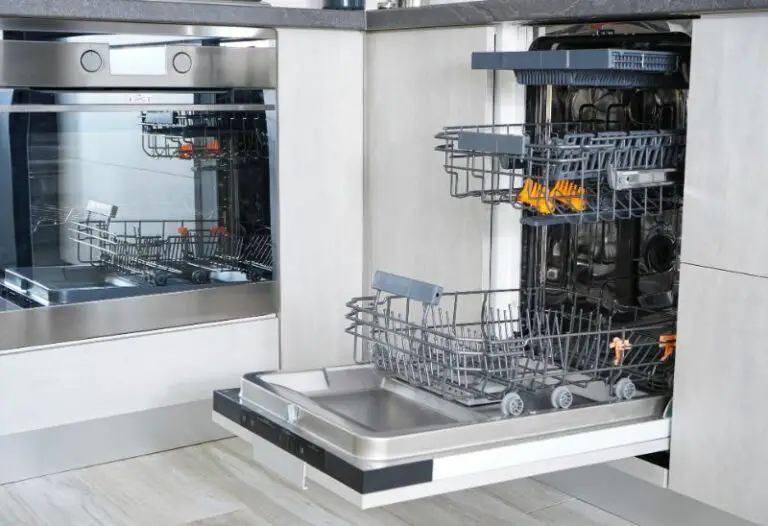Does Dishwasher Need GFCI? Unveiling Kitchen Safety Essentials
Imagine installing a new dishwasher in your home. You’ve chosen the perfect model and you’re ready to enjoy the convenience it will bring to your daily routine. But before you start using it, have you considered the safety measures? One crucial aspect that can’t be overlooked is whether your dishwasher requires GFCI protection or not.
The National Electrical Code (NEC) mandates GFCI protection for various appliances in the home, including dishwashers, to safeguard against electrical hazards. Understanding the importance of GFCI protection and ensuring your dishwasher is compliant not only enhances safety but is also a wise adherence to regulatory standards.
Key Takeaways
- Dishwashers require GFCI protection as per NEC guidelines to ensure safety from electrical hazards.
- GFCI devices are critical in preventing electric shock by interrupting power in case of ground faults.
- There are different options for GFCI protection, such as outlets or breakers, suitable for dishwashers.

Does Dishwasher Need GFCI: Yes, Almost Always
When you’re setting up your kitchen, one detail to pay close attention to is the electrical safety of your appliances. If you’ve got a dishwasher, it’s important to know that, almost always, you’ll need GFCI protection to be in compliance with the National Electrical Code (NEC).
So, what is GFCI? The Ground Fault Circuit Interrupter (GFCI) is like a guard for your electrical system. It monitors the flow of electricity in and out of your dishwasher. If it senses something is off—like a surge of electricity that could lead to a shock—it quickly cuts off the power. This happens in a fraction of a second, which can help prevent hazardous accidents, such as electrocution.
Here are some quick facts:
- The NEC specifies in Article 422.5(A) that GFCIs are required for dishwashers in dwelling units. This includes both hardwired and plug-in types.
- This rule aims to ensure that dishwashers within the kitchen area are equipped with GFCI outlets or breakers.
- The GFCI feature is essential because it detects any leakage current between the hot and neutral wires.
It’s worth noting that while this rule primarily applies to kitchen dishwashers, other locations in your home might have different regulations. Always check local codes for complete guidance.
In summary, think of GFCI protection as a necessary companion for your dishwasher. It’s a safety step that’s not just smart, but in most cases, it’s a standard required by law. So when in doubt, go with GFCI to keep you, your home, and your loved ones safe.
Why GFCI Protection Matters for Dishwashers
In the heart of your kitchen, the dishwasher is a hardworking appliance that you rely on. But behind the convenience, there’s a need for safety precautions due to its close proximity to water—a conductor of electricity.
Here’s why installing a Ground Fault Circuit Interrupter (GFCI) for your dishwasher is a wise move.
- Electrical Shock Prevention: Your dishwasher operates with water, and if there are any leaks or spills, they can create a path for electricity, potentially leading to shock. A GFCI outlet quickly cuts off the power at the first sign of a ground fault, which is when electricity unintentionally finds a route to the ground.
- Extra Safety Layer: Kitchen appliances like dishwashers often contain metal parts. Metal is an excellent conductor of electricity, so a ground fault could energize these components, posing a risk if accidentally touched. The GFCI outlet serves as an additional protective layer, beyond standard electrical grounding, to safeguard against accidental contact.
- Compliance with Codes: It’s also about adhering to safety standards. Modern electrical codes in many areas mandate GFCI protection for household outlets that are located near water sources—this includes your dishwasher.
GFCI Options for Dishwashers
When setting up GFCI protection for your dishwasher, there are a couple of approaches you can take to enhance electrical safety.
GFCI Outlet: A GFCI outlet is designed to cut off power if a ground fault is detected. This is especially critical for appliances like dishwashers that come into contact with water. For your dishwasher:
- Installation: You can have a GFCI outlet installed where your dishwasher plugs in. It should be easily accessible so you can test and reset it if needed.
- Dedicated Circuit: It’s a good idea to have the dishwasher on a dedicated circuit. This means it’s the only appliance on that circuit, reducing potential overload.
GFCI Circuit Breaker:
- Installation: This device installs in your electrical system’s circuit breaker panel and protects the entire circuit. If you’re not familiar with electrical work, you might need a professional’s help for this.
- Protection Covers All Appliances on Circuit: Not just your dishwasher, but any appliance on the same circuit benefits from this broader level of protection.
Here’s a quick breakdown:
| GFCI Type | Location | Installation | Protection |
|---|---|---|---|
| GFCI Outlet | Dishwasher plug-in | DIY or professional | Direct to appliance |
| GFCI Circuit Breaker | Circuit panel | Professional needed | Whole circuit |
Remember, GFCI protection is not just a good safety measure; it’s also a requirement under the National Electric Code (NEC) in the United States.
By using either a GFCI outlet or a circuit breaker, you’re taking a significant step to ensure your kitchen’s electrical safety. Make it a priority to protect yourself and your home from potential electrical hazards.
Benefits of Using GFCI Outlets for Dishwashers
When you’re installing a dishwasher, electrical safety should be a top priority. That’s where GFCI outlets come into play.
Let’s break down some of the key benefits:
- Protection Against Electrical Shocks: GFCIs monitor the flow of electricity. If there’s an imbalance, it trips the circuit, which stops the flow of electricity. This helps protect you from potential electric shocks.
- Helps Prevent Fires: By interrupting power during a ground fault, a GFCI reduces the risk of electrical fires, which can occur when electricity escapes the wiring.
- Localized Protection: If there’s an issue, the GFCI outlet will trip for just that specific outlet where your dishwasher is connected. Your other appliances remain unaffected and keep running smoothly.
- Ease of Use:
- Testing and Resetting: You can test and reset a GFCI outlet right there, without needing to go to your circuit breaker panel. This makes it super convenient to ensure everything is working as it should.
- Cost-Effective: In some cases, installing a GFCI outlet can be more cost-effective than installing a GFCI breaker for the entire circuit.
Here’s a friendly reminder: when installing a GFCI outlet for your dishwasher, make sure it’s easily accessible. It’s not just about compliance with electrical codes; it’s about making your kitchen a safer place. So go ahead, install a GFCI outlet, and get that extra peace of mind while your dishwasher takes care of the dirty work!
Benefits of Using GFCI Breakers for Dishwashers
When you’re safeguarding your home’s electrical system, using a Ground Fault Circuit Interrupter (GFCI) for your dishwasher is a wise choice. Here’s why it’s beneficial:
- Protection Against Faults: A GFCI breaker will monitor the amount of electricity flowing to and from your dishwasher. If an imbalance occurs, like a ground fault, it cuts off power to prevent electrical shocks.
- Compliance with Codes: Many local building codes now require the use of GFCI protection for household appliances, including dishwashers. This means you’re not only making your home safer but also ensuring that it’s up to date with the current standards.
- Wider Safety Measures: If your dishwasher is on a GFCI-protected circuit, all appliances on that circuit get an extra layer of security. It’s a way to make your kitchen a safer place overall.
- Tamper Resistance: GFCIs designed for use with dishwashers are typically tamper-resistant. They are less likely to be accidentally reset, reducing risks associated with curious children or pets.
Here’s a quick glance at the key points:
| Key Aspect | Benefit to You |
|---|---|
| Protection Against Electrical Faults | Reduces risk of shock, adds a safety layer |
| Code Compliance | Ensures your electrical system meets legal standards |
| Wider Protection | Secures the entire circuit, not just the dishwasher |
| Tamper Resistance | Prevents unintended resets |
Beyond GFCI: Additional Dishwasher Safety Tips
Think of your dishwasher like a trusty car. Just as a car needs regular tune-ups, your dishwasher needs a little TLC to keep it running smoothly and to give you peace of mind. Now that we’ve got GFCI sorted out, let’s roll up our sleeves and make sure everything else is in tip-top shape.
Proper Installation Matters!
First things first, make sure your dishwasher is grounded and connected by following the manufacturer’s instructions—think of it as the safety belt for your appliance. This isn’t just for show; it’s to ensure your dishwasher doesn’t end up being the star of a kitchen calamity. If you’re unsure about the wires and plugs, it’s always wise to call in a qualified electrician—think of them as your dishwasher’s best friend.
Regular Maintenance: Keep Things Shipshape
- Check hoses and connections for signs of wear and tear.
- Look out for leaks or damage—it’s better to spot these things early!
Safety First: Unplug Before You Dig In
Before you go all detective on your dishwasher, remember to unplug it. This might seem like an extra step, but it’s key to preventing electrical accidents—it’s the “look both ways before crossing the street” of dishwasher care.
Right Detergent for the Right Job
- Use dishwasher-safe detergent: This means no DIY soap mixtures!
- Avoid overdoing it with soap: A little goes a long way, and too much can make your kitchen look like a bubble bath party.
By sticking to these pointers, you don’t just ensure your dishwasher stays in excellent working order; you also help prevent any unexpected surprises that could disrupt your daily routine.
Frequently Asked Questions
When considering the safety of your dishwasher installation, a few common questions might pop up. Let’s answer those, ensuring you have all the details for a secure setup.
Is a GFCI outlet required for dishwasher installation?
In most cases, your dishwasher does need a GFCI (Ground Fault Circuit Interrupter) outlet for safety reasons. It protects against electrical shock by shutting off power if a fault is detected.
What amperage GFCI breaker is recommended for a dishwasher?
For most home dishwashers, a GFCI breaker of 20 amps is recommended. This ensures proper protection and avoids tripping due to power overloads.
Are there specific NEC requirements for dishwasher GFCI protection?
Yes, the National Electrical Code (NEC) outlines that dishwashers in residential kitchens require GFCI protection. Always check the latest NEC guidelines or with a local electrician for your area’s specific rules.
What is the preferred location for a GFCI when installing a dishwasher?
The GFCI for a dishwasher should be installed in an accessible location, such as under the sink. This avoids the inconvenience of moving the dishwasher to reset the GFCI if it trips.
Should a garbage disposal also be connected to a GFCI similar to a dishwasher?
The NEC does not mandate GFCI protection for garbage disposals as strictly as for dishwashers. However, having one installed is considered a safety best practice.
Can installing a GFCI outlet cause a dishwasher to trip?
It’s possible for a GFCI outlet to cause a dishwasher to trip if there’s a ground fault current. However, this is a safety feature intended to protect you from potential electric shocks.






